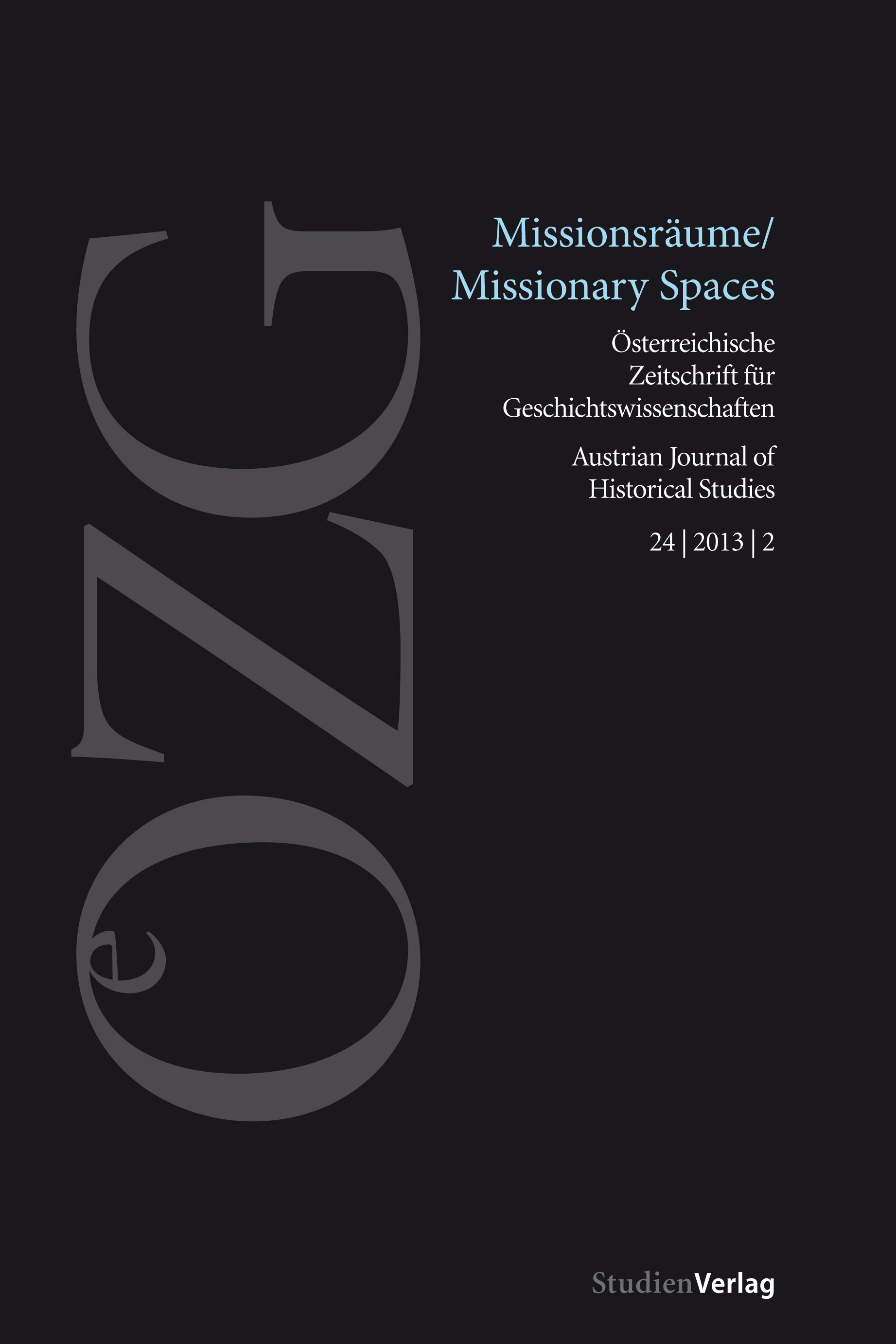The City as a Missionary Space
The Cultural Logic of Social Mission in Classical Modernity
DOI:
https://doi.org/10.25365/oezg-2013-24-2-2Keywords:
Social Mission, Logic of Culture, Classical Modernity, City, EuropeAbstract
The article discusses some aspects of missionary practices in the city between 1850 and 1930, focussing in particular on the period of „classical modernity“. It points out how the discourse of the protestant mission intersects with a moral perception of social problems within the modern metropolis. Thus I will show that the Inner Mission in Germany used distinctive spatial figures to establish its idea of „civilisation“ and a certain symbolic order. Finally, the ideology and practice of social mission in general will be described as a combination of four discursive elements: cha rismatic masculinity, religious empowerment, horizontal propagation and civilisatory uplift.


